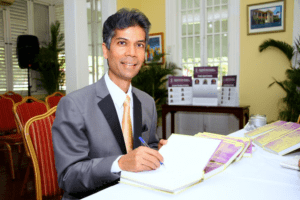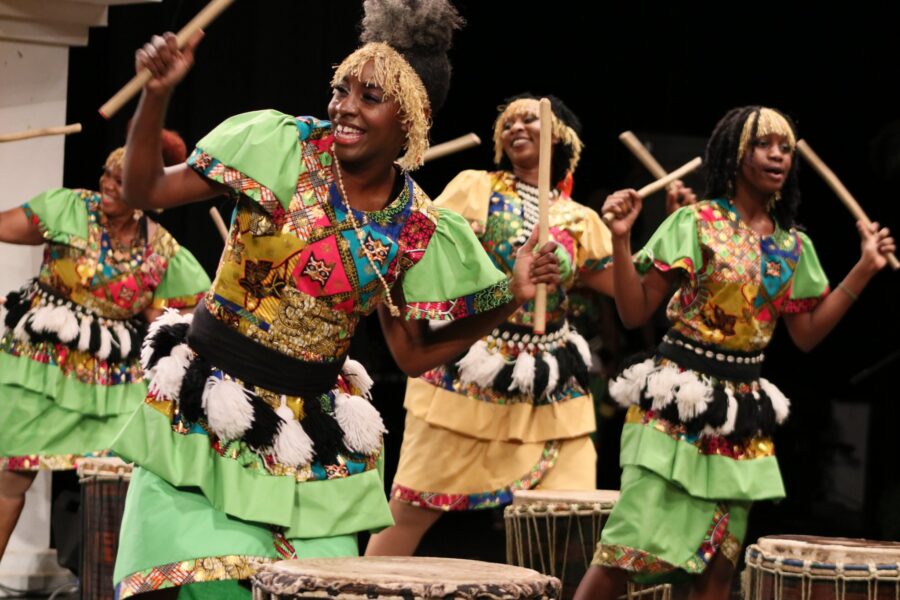
THE dastardly and cruel system of slavery robbed Mother Africa of hundreds of millions of her sons and daughters.
The slave trade, which ended more than 200 years ago in 1807, drained the continent of its most precious human resources.
This evil trade left the continent with a shameful legacy of bloody wars, crippling poverty and famines. Undoubtedly, the uprooting and dislocation of Africans to the Caribbean contributed to a psychological trauma and a debilitating crisis of self-esteem.
Upon retrospection, it now seems that whilst the Africans were freed in 1838 the slave masters were the ones who were still enslaved.
These uncaring masters in the Caribbean and Europe were ‘slaves’ to profits and capitalism. The minds of the planters remained shackled in racism, greed and cruelty.
Have you ever heard the expression The blackest thing in slavery wasn’t the slaves? Even after August 1, 1838, the ex-slaves continued to face insurmountable obstacles.
Indeed, they were no longer voiceless and powerless, but it was difficult for them to progress in a racist society with social and economic inequalities.
The colonial government passed new laws against the sub-division of lands. Many ex-slaves could not afford to own their plots and were forced to return to work on the dreaded sugar estates but were neither bound by law nor under the whip.
Furthermore, legislation was passed against vagrancy and squatting which led to many ex-slaves being
jailed.
Now let us look at the groups and individuals who campaigned for Emancipation Day? And why is this observance so important in today’s society?
In the 19th century, Africans of all classes began observing August 1 as Emancipation Day. Celebrations took the form of dinners, speeches, street parades, newspaper articles and church services. Interestingly, some progressive colonial Whites supported these events.
In Trinidad in 1887, Africans asked Governor William Robinson that the following year on August 1, 1888 be declared a public holiday known as Jubilee Emancipation Day.
However, the governor refused. Subsequently, on June 18, 1888, a large meeting was held in Port of Spain and two prominent African lawyers – Edgar Maresse-Smith and Emmanuel Mzumbo Lazare drew up a petition and collected thousands of signatures. The petition, which demanded that August 1st be declared a public holiday, was sent to the governor who refused to budge.
However, after more public campaigning, the governor finally decided to declare the day a public holiday.
From 1888 to the 1920s, August 1st was observed as a public holiday. But in the 1920s, the British colonial authorities renamed the day – Discovery Day. Black leaders and groups deliberately ignored the change and continued to organise Emancipation Day celebrations.
During the 1920s these included the Negro Welfare Social and Cultural Association, and Marcus Garvey’s Universal Negro Improvement Association. There were always demands for the authorities to restore the official designation of the day.
For instance, from the 1960s to 1980s, George Weekes of the OWTU, the National Joint Action Committee and the Emancipation and Freedom Day Committee appealed for recognition of August 1st.
Eventually, in 1985, the government of Trinidad and Tobago recognised August 1st, Emancipation Day, as a national holiday.
There are some reasons why the observance of Emancipation Day is crucial to nation- building:
1. There is a need for the psychological healing of deep wounds. Our society cannot
mature and heal whilst descendants of ex-slaves carry the burdens of slavery in
their minds;
2. Emancipation is an important time for self-analysis. It was a start on the road to
freedom and national development;
3. Emancipation presents the opportunity for other groups in the society to develop a better understanding of Afro-Trinidadians thus promoting racial harmony.
4. The observance of the Day allows local and regional heroes to be recognised. This recognition is vital in developing Caribbean identity, providing role models and inspiration for the next generation. These heroes represent a triumph of the human spirit.
The pertinent question today is – to what extent is the past responsible for the present? Everyone in society must be responsible for his or her own situation and have that desire to improve. Yes, we must purge the horrible evils of the past but we must also learn lessons from the past to ensure these are never repeated and tolerated.
Dr Jerome Teelucksingh is an activist. He initiated the inaugural observances of International Day for the Elimination of Violence Against Men and Boys (January 31) and World Day of the Boy Child (May 16). He has made academic presentations at tertiary institutions including Harvard University and Oxford University.
See other articles by Dr Jerome Teelucksingh on AZP News:
The Importance of Emancipation Day
Tobago’s Working Class in the 1920s, 1930s
Are Humble Caring Fathers Champions?
Influencing West Indian Masculinity
Defining Caribbean Masculinity
Is Monogamy Encouraged in the Caribbean
Naps Girls: From Humble Beginnings to Excellence
US Media Creates Cultural Dependency in the Caribbean
Bloodless Revolution to Save Lives in Developing Countries
The Need for a Social and Moral Revolution
The Law of Supply and Demand in Developing Countries
End the Dependency for Developing Countries
T&T Carnival and the Emperor’s New Clothes
The Influence of Labour on Caribbean Integration
The illusion of political Unity
Presbyterians in Trinidad: Humble Missionaries, Local Workers
Religious Plurality: Curse or Blessing
Caribbean Youth Need Optimism, Patriotism
Rethinking Identities in Caribbean, Latin America
November 19: All Inclusive International Men’s Day
Should International Agencies be Blamed for Unemployment
A Need to Observe Word Unemployment Day
An Ideology for the Trade Union Movement
The Man who Couldn’t be Prime Minister
Social Outburst vs Social Revolution
Challenges of the Men’s Movement
If George Floyd was Denied Parole
The Meaning of Indian Arrival Day in T&T
International Men’s Day – A Way of Life
Wounds that cause school violence
May Day: A Time for Solidarity, Strength
Who Coined the Term ‘Black Power’
The illusion of political Unity
Presbyterians in Trinidad: Humble Missionaries, Local Workers
Religious Plurality: Curse or Blessing
Caribbean Youth Need Optimism, Patriotism
Rethinking Identities in Caribbean, Latin America
November 19: All Inclusive International Men’s Day
Should International Agencies be Blamed for Unemployment
A Need to Observe Word Unemployment Day
An Ideology for the Trade Union Movement
The Man who Couldn’t be Prime Minister
Social Outburst vs Social Revolution
Challenges of the Men’s Movement
If George Floyd was Denied Parole
The Meaning of Indian Arrival Day in T&T
International Men’s Day – A Way of Life
Wounds that cause school violence
May Day: A Time for Solidarity, Strength
Who Coined the Term ‘Black Power’
![]()













